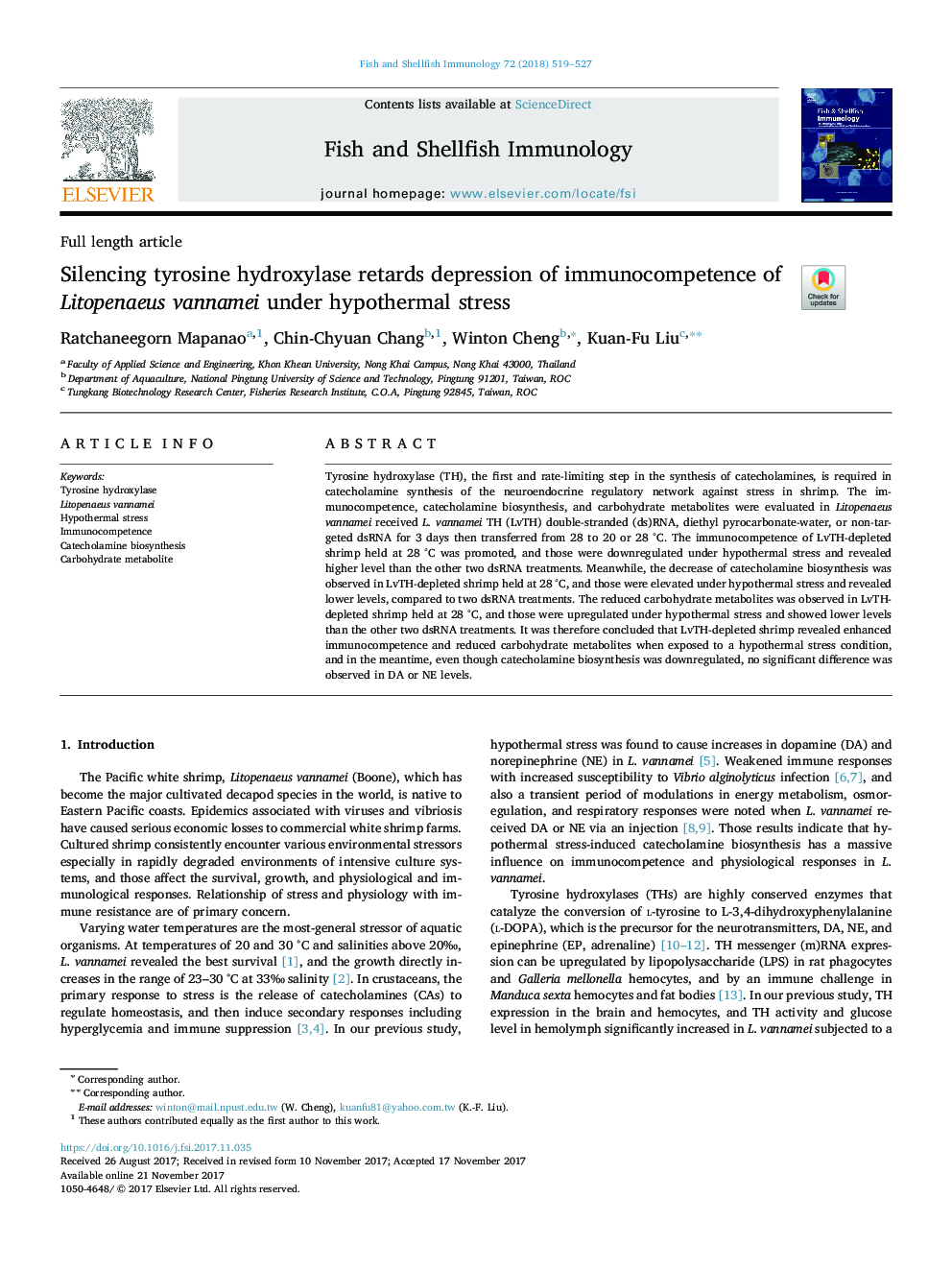| Article ID | Journal | Published Year | Pages | File Type |
|---|---|---|---|---|
| 8498912 | Fish & Shellfish Immunology | 2018 | 9 Pages |
Abstract
Tyrosine hydroxylase (TH), the first and rate-limiting step in the synthesis of catecholamines, is required in catecholamine synthesis of the neuroendocrine regulatory network against stress in shrimp. The immunocompetence, catecholamine biosynthesis, and carbohydrate metabolites were evaluated in Litopenaeus vannamei received L. vannamei TH (LvTH) double-stranded (ds)RNA, diethyl pyrocarbonate-water, or non-targeted dsRNA for 3 days then transferred from 28 to 20 or 28 °C. The immunocompetence of LvTH-depleted shrimp held at 28 °C was promoted, and those were downregulated under hypothermal stress and revealed higher level than the other two dsRNA treatments. Meanwhile, the decrease of catecholamine biosynthesis was observed in LvTH-depleted shrimp held at 28 °C, and those were elevated under hypothermal stress and revealed lower levels, compared to two dsRNA treatments. The reduced carbohydrate metabolites was observed in LvTH-depleted shrimp held at 28 °C, and those were upregulated under hypothermal stress and showed lower levels than the other two dsRNA treatments. It was therefore concluded that LvTH-depleted shrimp revealed enhanced immunocompetence and reduced carbohydrate metabolites when exposed to a hypothermal stress condition, and in the meantime, even though catecholamine biosynthesis was downregulated, no significant difference was observed in DA or NE levels.
Related Topics
Life Sciences
Agricultural and Biological Sciences
Aquatic Science
Authors
Ratchaneegorn Mapanao, Chin-Chyuan Chang, Winton Cheng, Kuan-Fu Liu,
